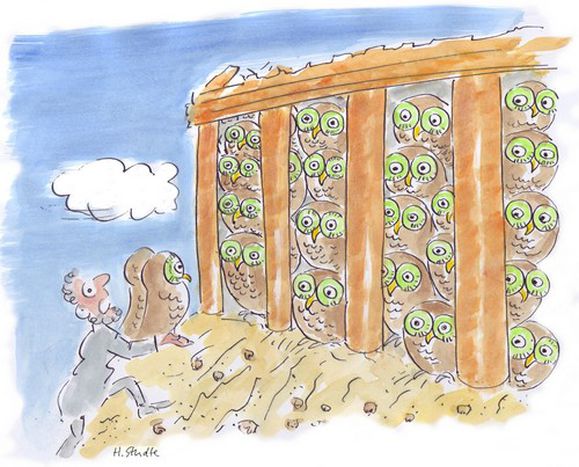
Coals to Newcastle
Published on
Translation by:
Erin WoycikIf you found yourself in Athens during the 2004 Olympics you would have seen something curious, aside from the sporting events. In the Olympic stadium an artist placed 1, 200 owl shaped figures in the colours of the Olympic rings. For a regular reader of the Tower of Babel, something will have instantly clicked: someone had taken owls to Athens!
Of course, this situation doesn’t mean something for everyone. The saying goes back to the Greek poet Aristophanes (circa 445 B.C.), who asked: who has brought owls to Athens? Since then the expression has been used, for example in Germany or Switzerland, to describe something completely superficial or unnecessary –given that in Athens there have always been many owls- Athena’s symbol is more than just an emblem.
In France, Athena fades away in favour of competence, the goddess of the wise man, whose attribute is also an owl: porter des chouettes à Minerva (take owls to Minerva), goes the saying there. The French also use another clearer expression: porter de l'eau à la rivière (to carry water in a river). Equally useful is the Polish phrase: nosiæ drwa do lasu – which means exactly the same thing.
In England they roll up their sleeves and clearly shout to the passing worker to carry coals to Newcastle, an absurd suggestion since Newcastle once exported coal to the rest of the world. In Spain, it is a bit more literary: they speak of vender miel al colmenero or selling honey to the beekeeper. Catalonians are less roundabout: portar aigua al mar (taking water to the sea).
Translated from Eulen nach Athen



